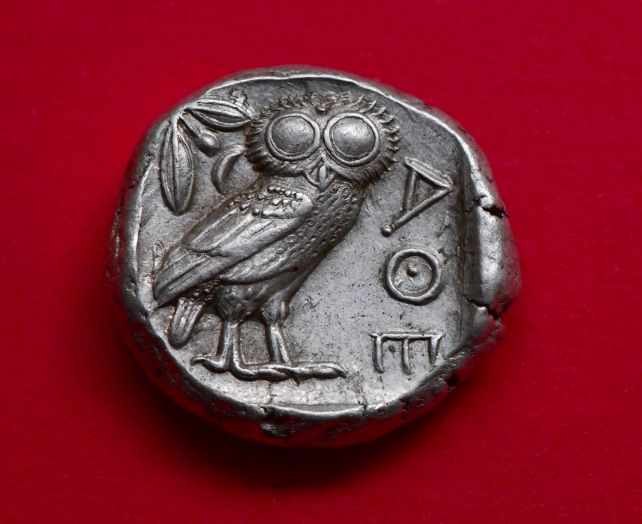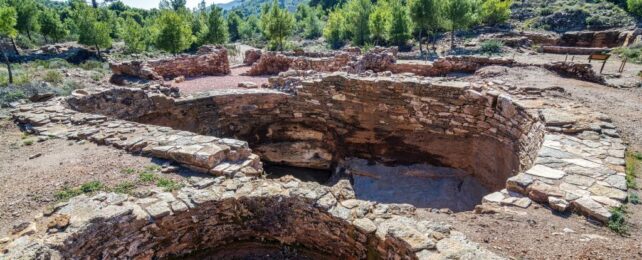We humans are a messy bunch. Where we dwell, there accumulates evidence of our nesting. We have fossilized garbage piles dating back more than 100,000 years. It's a whole thing.
Putting aside its potential for harm, anthropogenic pollution can be a useful archaeological tool. We can see when people started using certain technologies, and trace the evolution of culture based on the unthinking imprint left behind thousands of years after the people who made it.
It's in such traces that archaeologists from Germany and Greece have now found the oldest known evidence of lead pollution from human activity – and even linked its rise to the emergence and establishment of advanced monetized society in ancient Greece.
"Because lead was released during the production of silver, among other things, proof of increasing lead concentrations in the environment is, at the same time, an important indicator of socioeconomic change," says paleoscientist Andreas Koutsodendris of Heidelberg University in Germany.

Lead as a byproduct of human activity first emerges in the archaeological record at around the time we started to produce silver via smelting and refining of lead ores around 5,000 years ago. It can be found in ancient human teeth and bones; and, later, in environmental samples preserved in archaeological layers, concurrent with the emergence of coins about 2,500 years ago.
To study the trajectory of lead pollution in ancient Greece, Koutsodendris and his team made a study of the bottom of the Aegean Sea and its coastline. The team used an excavator to carefully extract a long, vertical section of the seafloor, which provided layers of material deposited in sequence over millennia.
These layers can be dated and analyzed for clues to determine what was falling onto the seafloor at any given epoch. Koutsodendris's team looked not just for signs of pollution, but also for pollen – a tracer for agricultural activity that reveals a broader picture of the human society inhabiting the region.
Their analysis of the core samples revealed the oldest anthropogenic lead pollution to date, coinciding with layers deposited around 5,275 years ago. This is about 1,200 years older than the previously earliest known anthropogenic lead pollution of the environment, and coincides with the advent of the Bronze Age in the region.
Curiously, the researchers detected no signs of lead pollution in layers associated with the entirety of the Bronze Age itself. But then they found a dramatic uptick around 2,225 years ago – not long after a similar rise was detected in Ancient Roman skeletons.

"The changes coincide with the conquest of Hellenistic Greece by the Romans, who subsequently claimed for themselves the region's wealth of resources," explains archaeologist Joseph Maran of Heidelberg University.
Meanwhile, changes in pollen identified shifts in economy as Ancient Greece transitioned from a largely pastoral society to one that was increasingly monetized. This transition seems to have had a profound impact on the environment, marked by widespread deforestation, agricultural expansion, and a significant increase in environmental heavy metal deposition.
This was because the Ancient Romans pushed mining and smelting of metals like silver, gold, and lead itself, which lined Roman plumbing. Such activity not only leached lead into the environment, but required an increase in production of wood to fuel smelting facilities, in addition to land clearing for agricultural purposes.
"The incorporation of Greek regions into the Roman political sphere provided the new rulers with the opportunity to benefit from the natural resources of the recently acquired provinces," the researchers write, "which led to an unprecedented increase in the exploitation of Greek mining districts in order to extract gold, silver, and other metal resources."
And probably a rise in lead poisoning for the poor Ancient Greeks, to boot.
The research has been published in Communications Earth & Environment.
